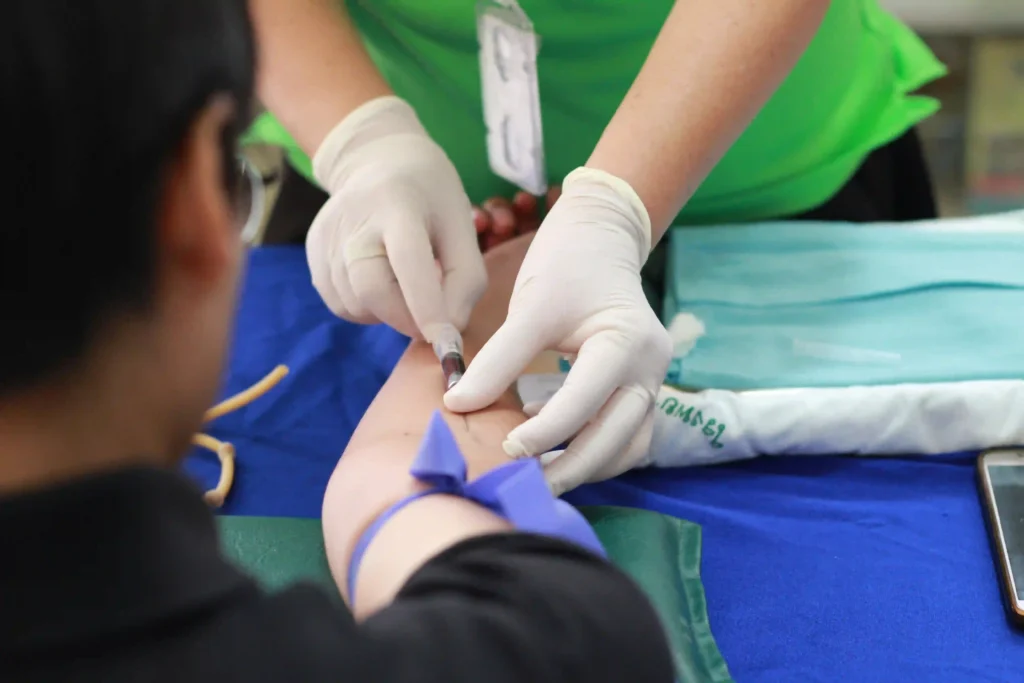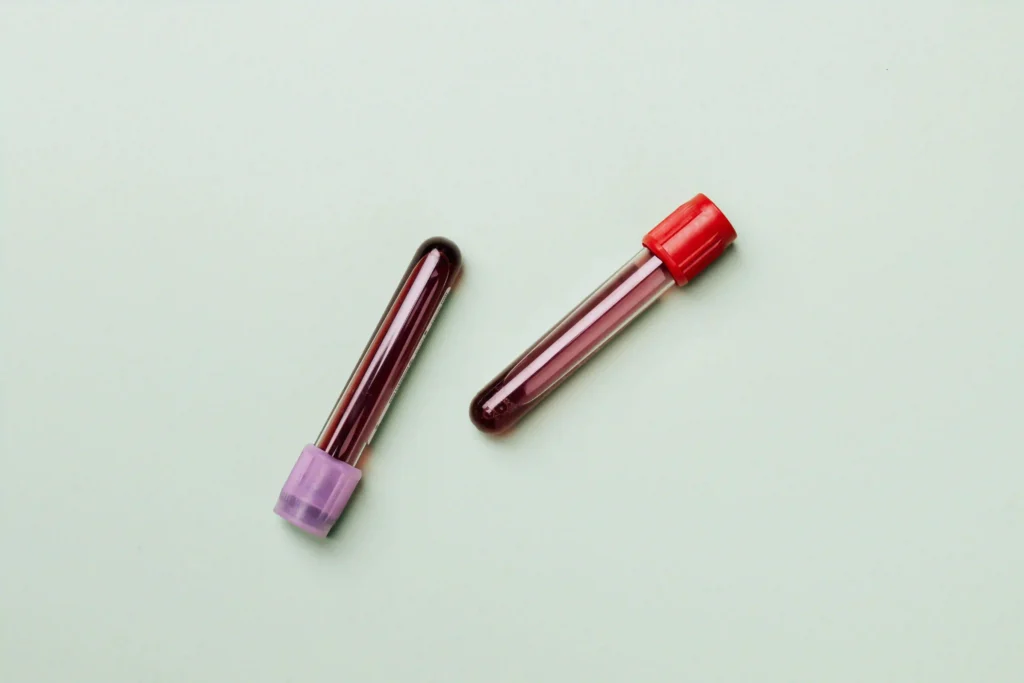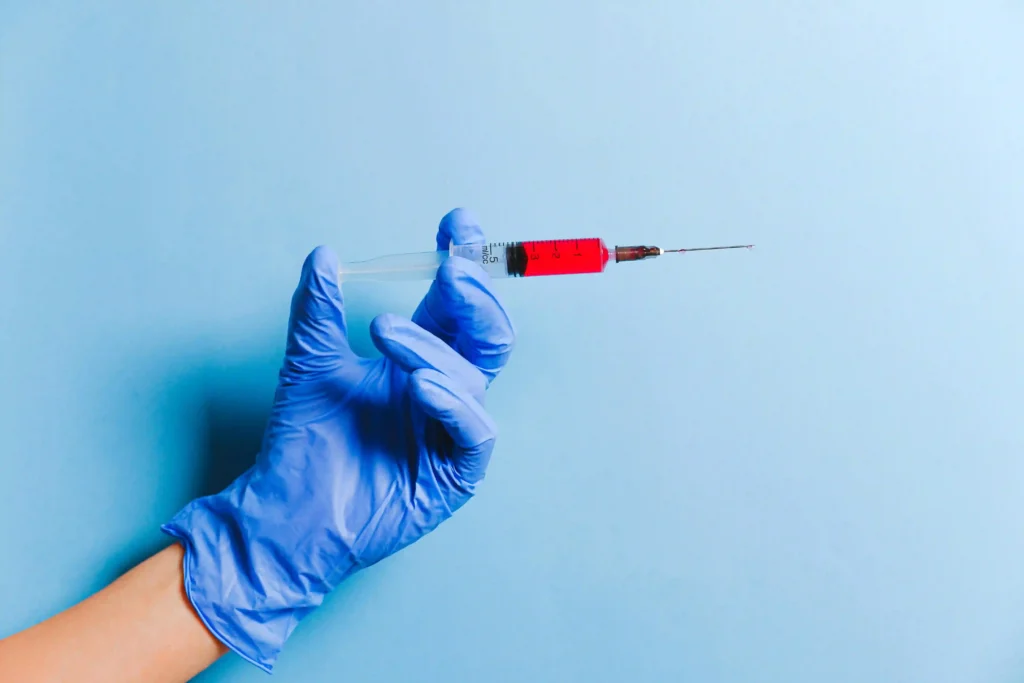Introduction

Medical professionals use blood tests both for diagnostic purposes and continuous condition assessment. Tests for blood evaluation might need patients to fast beforehand or they can proceed without fasting restrictions. Knowing the requirements for your specific test leads to precise unwanted outcome results. This article investigates whether consuming food before blood testing is allowed along with the elements to evaluate.
Table of Contents
1. Can I Eat Before a Blood Test?
The requirement for eating before a blood test depends specifically on the type of examination being performed. As a complete blood count (CBC) study does not need fasting the testing process accepts all foods but cholesterol or glucose tests need fasting in place.
Several blood tests need fasting conditions to generate proper test outcome. The consumption of food before a fasting test leads to modifications of blood sugar together with cholesterol and additional measurement values. Make sure to follow what your doctor says since skipping directions can result in incorrect test outcomes that could cause either a wrong diagnosis or additional testing.
2. Why Do Some Blood Tests Require Fasting?
The process of fasting creates results that stay pure from food contamination therefore doctors can precisely measure blood sugar together with cholesterol and various biomarkers.
The nutrients present in your food consume bloodstream time which leads to changes in your test measurement outputs. If you consume food before performing a glucose test it will create misleading high blood sugar results. The process of fasting creates a precise healthcare assessment which is free from measurement errors.
3. How Long Should You Fast Before a Blood Test?
Patients need to undergo fasting for 8 to 12 hours prior to most blood test collections. The required duration of fasting varies between different tests which determine the appropriate amount of time needed before testing.
Several blood tests have different requirements regarding fasting duration that must be followed. The fasting requirements for lipid and glucose tests normally extend to 8–12 hours before the scheduled blood draw. Selection of water remains the only permitted beverage during this fasting period. Testing blood in early morning will reduce any discomforts that result from overnight fasting.
4. What Happens If You Accidentally Eat Before a Fasting Blood Test?

The consumption of food before a fasting test results in erroneous test outcomes that in some cases demand another test.
The levels of blood sugar together with cholesterol and triglycerides react to the amount of food you consume. It is essential to notify your healthcare provider when you consume food before a fasting test. A doctor can choose to reschedule the test along with appropriate changes to test result evaluation. The process of fasting needs to be done exactly as instructed because incorrect diagnoses may occur otherwise.
5. Can You Drink Water Before a Blood Test?
Medically the requirement to consume water is generally approved before administering a fasting blood test when this practice helps prevent dehydration and enhances blood transport.
The human body experiences better blood draw conditions when hydrated because fluid maintains visible veins while enhancing overall blood flow. Additive flavors such as carbonation together with sugar content should be avoided before testing to prevent inaccurate results from developing. Ask your doctor for permission to consume water during the test period.
6. What Foods Should Be Avoided Before a Blood Test?
Consuming foods that are rich in either fats or sugars or caffeine should be avoided ahead of non-fasting blood tests since these items modify blood measure values temporarily.
The analysis of blood tests can become distorted when patients consume food items containing high sugar and fat or caffeine elements because these substances modify blood sugar and cholesterol levels as well as additional variables. Consuming a balanced meal should be combined with the elimination of alcohol along with restricted intake of processed foods and extra salt before most blood tests.
7. Can You Drink Coffee or Tea Before a Blood Test?
Fasting blood test results can be affected by the compounds present in both coffee and tea so patients should completely avoid these beverages.
Many clients think that unsweetened coffee or tea does not affect blood sugar levels but both beverages actually stimulate digestion and result in altered lipid tests and blood sugar level changes. Intakes of caffeinated beverages result in loss of fluids which inhibits blood drawing procedures. Your physician has the authority to approve or deny drinking water as a beverage before blood tests.
8. Are There Any Blood Tests That Do Not Require Fasting?
The three blood tests CBC and thyroid tests and liver function tests can be conducted without fasting as eating before them is acceptable.
Most medical tests to evaluate overall medical status do not require patients to fast beforehand. Non-fasting blood tests provide results for blood cell quantities while measuring liver enzymes and kidney performance as well as vitamin test results. It is vital to confirm with your doctor before fasting because some conditions need absolute fasting to ensure precise results.
9. What Are the Best Foods to Eat After a Blood Test?

A nutrient-rich meal with protein combined with healthy fats and complex carbs should be eaten following blood tests to regain your energy and normalize blood sugar levels.
Mild fatigue caused by blood testing becomes more manageable when you consume eggs together with whole grains, lean meats, nuts and fruits. Hydration is also important. Having feelings of dizziness can be eased by eating small portions of fruit or yogurt.
10. Does Eating Affect Blood Sugar and Cholesterol Test Results?
These tests register temporary shifts in blood sugar levels together with cholesterol as the result of eating food which leads to flawed test readings.
High-carb or high-fat foods intensify both glucose and lipid amounts within the body. Sugary food consumption before a glucose test might show elevated blood sugar levels although you are not diabetic. The measurement of accurate test results depends on fasting since it eliminates results that could lead to misunderstandings.
11. How Can You Prepare for a Blood Test?
Your test accuracy depends on proper fasting practices along with well-hydrated state and complete avoidance of caffeine as well as alcohol consumption and sufficient restful sleep.
The correct pre-test preparation methods reduce the possibility of getting faulty test results. Blood collection becomes simpler when patients stay hydrated and abstain from alcohol with heavy meals because this practice decreases the chance of test inaccuracies. Always seek guidance from your healthcare provider about test requirements whenever you doubt the specific instructions.
12. What Should You Do If You Feel Weak After a Blood Test?
The onset of weakness after blood draw requires you to take a seat while drinking water followed by eating a light snack to regain energy.
Fasting for blood tests along with minimal blood draw causes temporary light-headedness in patients. Your recuperation from blood test dizziness will benefit from consuming small proteins combined with natural sugars such as nuts or fruits. Dizziness that remains should require you to lie down while you rest until symptoms disappear. You must notify the medical staff if faintness arises.
Conclusion
Your ability to eat before a blood test depends on what type of examination the healthcare provider performs. Accurate laboratory results for specific blood tests need patients to refrain from eating whereas additional tests do not require fasting. You must strictly adhere to your doctor’s instructions since failure to do so might result in incorrect test results. The medical staff recommends water for drinking but requests the permanent avoidance of tea along with coffee. You should replace the energy lost during your test with a meal that offers valuable nutrients. Recovery from symptoms can be facilitated by rest together with adequate hydration when you become dizzy or weak. You should always seek guidance from your healthcare provider about the correct procedures to obtain optimal test reliability.